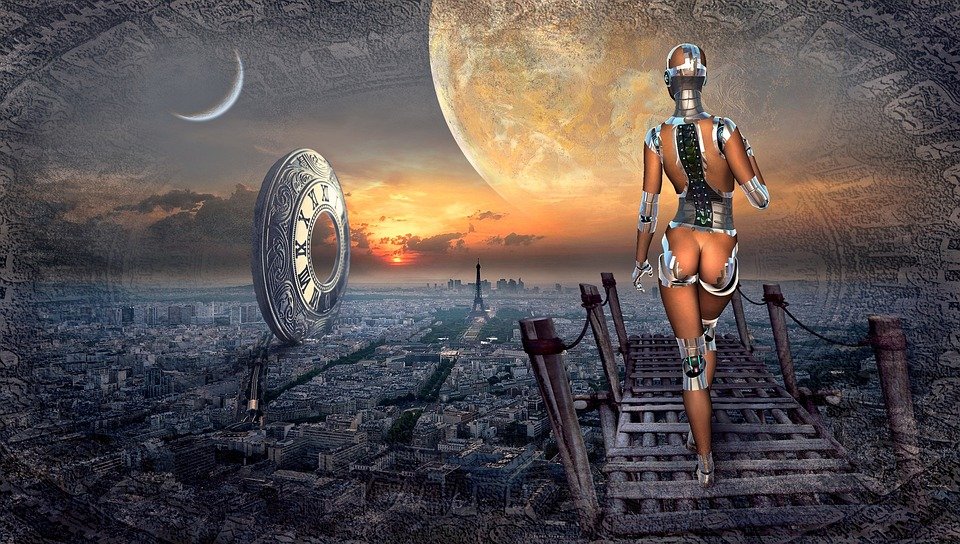The Power of Numbers: How Singularity Math Challenges the Idea of a Divine Creator
Introduction
The concept of a divine creator has been a cornerstone of many religious beliefs throughout human history. However, the rise of scientific discoveries and advancements in mathematics have challenged this idea, particularly through the study of singularity math. Singularity math explores the infinite possibilities and patterns that arise from numbers, raising questions about the necessity of a divine creator. In this article, we will delve into the power of numbers and how singularity math challenges the concept of a divine creator.
The Power of Numbers
Numbers hold a remarkable power in our world. They are not merely symbols used in calculations but are deeply intertwined with the fabric of our reality. Mathematics provides a language to describe and understand the patterns and order found in the universe. From the precise measurements of celestial bodies to the intricate patterns of biological systems, numbers reveal the underlying order and structure of the natural world.
Throughout history, humans have marveled at the elegance and beauty of mathematical concepts. The discovery of mathematical constants such as pi and the golden ratio has fascinated mathematicians and philosophers alike. These constants appear in various natural phenomena, suggesting a fundamental connection between mathematics and the physical world.
Singularity Math: Uncovering Infinite Possibilities
Singularity math takes the exploration of numbers to a new level by delving into the realm of infinity. It investigates the patterns that emerge when numbers are pushed to their limits, revealing astonishing results. One example is the study of infinite series, which are sums of an infinite sequence of numbers. These series often converge to a finite value, defying our intuition about working with infinite quantities.
Through the study of singularity math, mathematicians have discovered profound patterns and relationships in seemingly chaotic systems. Fractal geometry, a branch of mathematics that focuses on intricate patterns repeating infinitely at different scales, is a prime example. Fractals can be found in nature, such as the branching patterns of trees or the intricate designs of snowflakes. These patterns suggest that complex structures can arise naturally from simple mathematical principles, challenging the notion of a divine creator.
The Challenge to a Divine Creator
As singularity math reveals the infinite possibilities and patterns that emerge from numbers, it challenges the idea of a divine creator as the sole explanation for the complexity and order in the universe. The intricate structures and patterns found in nature can be explained through mathematical principles, suggesting that no external force is necessary to create or maintain them.
Furthermore, singularity math presents the concept of an infinite universe, where the possibilities are endless. In an infinitely expanding universe, the emergence of life and complex systems becomes a statistical inevitability rather than an improbable event requiring divine intervention. The laws of probability and mathematics suggest that given enough time and space, the existence of life and the emergence of intelligent beings become highly probable.
FAQs
Q: Does singularity math disprove the existence of a divine creator?
A: Singularity math challenges the idea of a divine creator by showing that complex patterns and structures can arise naturally from mathematical principles. However, it does not disprove the existence of a divine creator outright. It simply offers an alternative explanation for the order and complexity observed in the universe.
Q: Can singularity math explain the origins of the universe?
A: Singularity math provides insights into the patterns and possibilities that arise from numbers, but it does not provide a definitive answer to the origins of the universe. The study of cosmology and theories such as the Big Bang attempt to explain the origins of the universe, but these theories are still subject to ongoing research and exploration.
Q: Are there any religious perspectives that incorporate singularity math?
A: While singularity math challenges traditional religious beliefs, some religious perspectives incorporate scientific discoveries and advancements. For example, proponents of theistic evolution argue that the processes of evolution and the natural world can be seen as part of God’s plan. These perspectives seek to reconcile scientific knowledge with religious faith.
Q: How does singularity math impact our understanding of spirituality?
A: Singularity math raises philosophical and existential questions about the nature of reality and our place in the universe. It challenges traditional conceptions of a divine creator and invites us to explore alternative ways of understanding spirituality. Some may find a sense of awe and wonder in the intricate patterns and infinite possibilities revealed by singularity math, while others may question the need for a divine creator altogether.
Conclusion
The power of numbers and the study of singularity math challenge the idea of a divine creator by revealing the intricate patterns and possibilities that arise naturally from mathematical principles. The elegance and beauty found in the order of the universe can be explained through mathematics, suggesting that no external force is necessary to account for the complexity observed in nature. While singularity math does not definitively disprove the existence of a divine creator, it offers an alternative perspective that invites us to ponder the nature of reality and our place in the universe.

